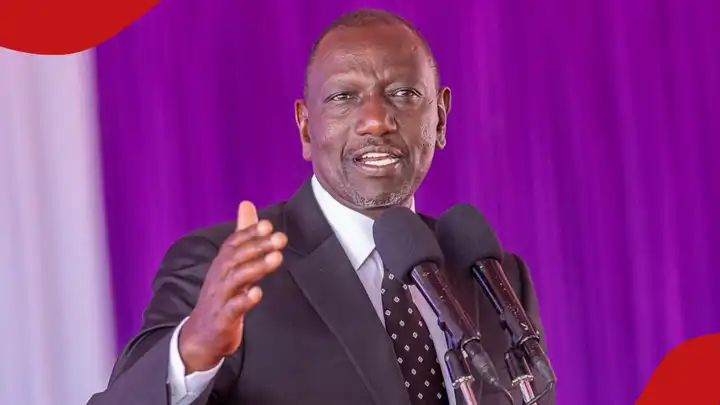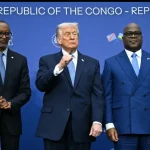Kenya’s government has initiated discussions with India’s Adani Group to determine compensation for the cancellation of a KSh 96 billion electricity project that was meant to boost the country’s power generation capacity. The decision comes years after the controversial Lamu coal-fired power plant was halted due to environmental concerns, public protests, and global shifts toward renewable energy.
This new round of talks highlights Kenya’s efforts to maintain strong international investment relations while balancing sustainability, energy security, and economic accountability.
⚡ Background of the Adani Electricity Project
In 2015, the Adani Group, through its Kenyan subsidiary, won the tender to build a 1,050-megawatt coal power plant in Lamu County. The ambitious project, valued at over KSh 96 billion, was expected to be one of East Africa’s largest private energy investments. It aimed to lower electricity costs and support Kenya’s Vision 2030 development goals.
However, the project faced heavy criticism from environmental activists, local communities, and climate change advocates who argued that the plant would destroy the fragile Lamu ecosystem and increase carbon emissions. After a series of court battles and environmental assessments, the Kenya National Environmental Tribunal (NET) cancelled the project’s license, citing lack of proper consultation and violation of environmental standards.
💬 Government Confirms Compensation Talks
According to sources within the Ministry of Energy, Kenya is now in formal discussions with Adani to determine a fair compensation package following the termination of the contract. Officials have noted that Kenya must honor certain international investment agreements, which require governments to compensate foreign investors for cancelled projects — especially when large financial commitments and feasibility studies were already undertaken.
“The government is reviewing all agreements related to the Lamu power project to ensure the settlement is transparent and in the best interest of taxpayers,” said one senior official.
🌍 Adani’s Global Expansion and African Interest
The Adani Group, led by Indian billionaire Gautam Adani, has been expanding aggressively across Asia, Africa, and the Middle East — with investments in ports, energy, and logistics. Kenya’s collaboration with Adani was seen as a strategic partnership to modernize the country’s power infrastructure.
However, as the global economy pivots toward renewable energy, many African nations — including Kenya — are rethinking coal-powered projects in favor of green energy solutions such as geothermal, wind, and solar. Kenya is already one of Africa’s top producers of renewable energy, with over 80% of its electricity coming from clean sources.
🌱 Shift Toward Renewable Energy and Sustainability
Kenya’s decision to cancel the Adani coal project aligns with its commitment to sustainable development and international climate agreements such as the Paris Accord. The country aims to become a regional clean energy hub, exporting electricity to neighboring nations while reducing dependency on fossil fuels.
The government has also partnered with global institutions like the World Bank and the European Union (EU) to fund green projects, including solar mini-grids, wind farms in Turkana, and geothermal expansion in Naivasha.
💰 What Compensation Could Mean for Kenya
The potential compensation deal could cost Kenyan taxpayers billions, depending on the terms of the contract and arbitration outcomes. Experts suggest that the government may seek to negotiate down the figure, citing public interest and environmental policy changes.
Economists warn that such payments could affect Kenya’s fiscal space at a time when the country is already struggling with public debt and high inflation. Nonetheless, resolving the issue could help restore investor confidence and strengthen Kenya’s reputation as a country that respects international business contracts.
⚖️ Balancing Development, Investment, and Environment
The Adani compensation talks have reignited debate over Kenya’s energy policy direction. Should Kenya continue to attract major investors in infrastructure, or should it prioritize environmental sustainability?
Analysts argue that a hybrid approach is possible — one that encourages clean investment while honoring past agreements responsibly.
📊 Kenya’s Energy Future
Kenya is betting on its geothermal reserves, solar capacity, and wind potential to drive future growth. The Kenya Electricity Generating Company (KenGen) and Independent Power Producers (IPPs) are leading efforts to supply affordable, reliable, and renewable electricity to support industrialization and rural electrification.
The cancellation of the Adani project, while costly, represents a turning point in Kenya’s energy journey — from coal to clean energy, from controversy to sustainability.
🧾 Conclusion
Kenya’s talks with Adani underscore the complex balance between economic development, environmental responsibility, and international diplomacy. As negotiations continue, Kenyans and the world will be watching to see how the government navigates this high-stakes issue.
The outcome will not only shape Kenya’s relationship with global investors but also define its commitment to a green, sustainable energy future.










